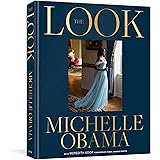“Unlocking the Mystery: Why the Choice of Pronouns After ‘Than’, ‘As’, and ‘Like’ Could Change Everything You Thought You Knew About Comparisons!”
Isn’t it intriguing how a simple word can spark a fierce debate among avid grammarians? While navigating the maze of English grammar, I stumbled upon the nuanced intricacies of pronoun usage—particularly those pesky comparisons involving “than,” “as,” or “like.” As someone who revels in the art of writing, I was both amused and bewildered by the conflicting opinions that surfaced. You see, some grammar purists insist we must “imagine” the unspoken verbs in our sentences, leading us to declare, “She’s taller than he,” instead of the more commonly used “She’s taller than him.” Others, however, roll their eyes at such formalities, advocating for a more forgiving approach. So, what’s a writer to do? Dive deeper into this amusing world of grammatical debates that word nerds seem to thrive on. Ready to explore the ins and outs of pronoun disputes and find your own footing? Click here to LEARN MORE.

WRITING WELL
And why this is such a widely debated issue among word nerds
I had no idea I was stumbling upon a long-standing argument related to English grammar when I looked into what type of pronoun should be used in a comparison that includes “than,” “as,” or “like.” Luckily, though, multiple resources, including Merriam-Webster, helped put the argument to rest—at least in my addled brain.
Various sources cite the need to “imagine” the logical completion of a comparison before choosing whether to use a subject/subjective pronoun such as “I,” “he,” “she,” or “they” or an object/objective pronoun such as “me,” “him,” “her,” or “them” in that comparison. This argument states that it’s incorrect to write a sentence like “She’s taller than him.” Instead, such sources argue, one should write “She’s taller than he.” This argument encourages the writer to add the implied/missing/finite verb (in this case the verb “is”) after the pronoun, which determines the need for the use of the subject/subjective pronoun “he” rather than the object/objective pronoun “him” after “than.”
Luckily, other sources argue against this. The best explanation I’ve found stated simply that if…

















